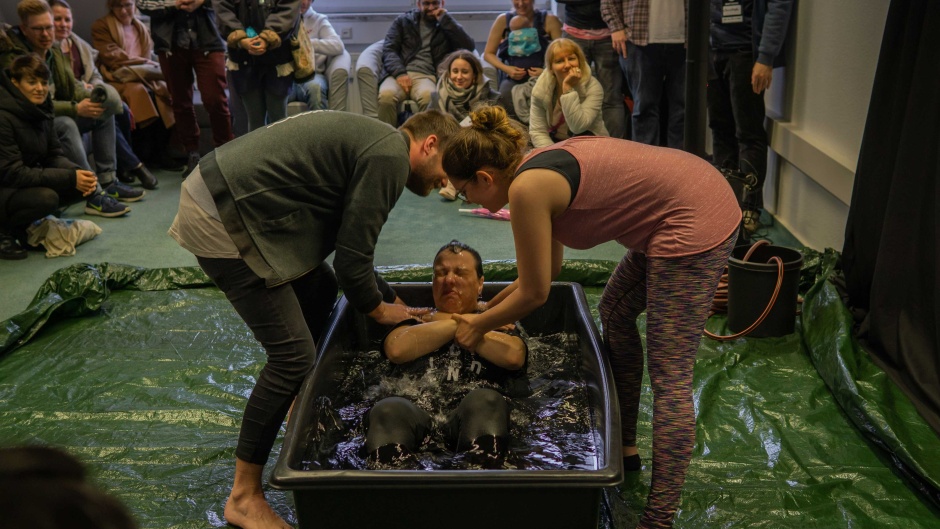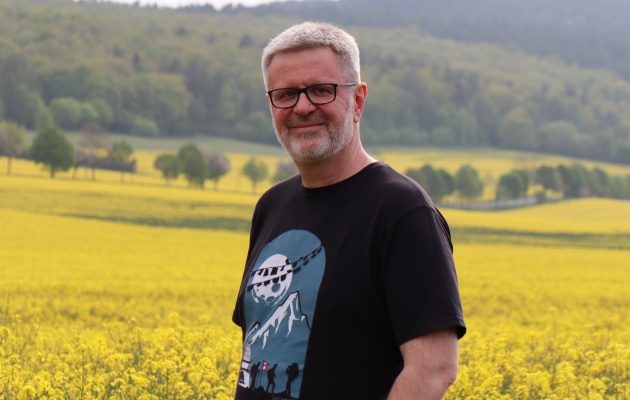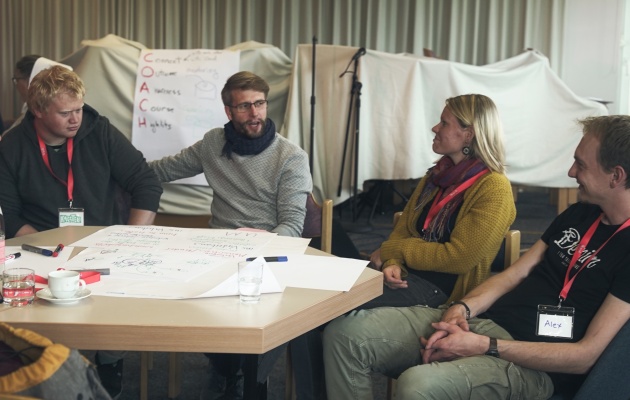“People know so little of the Bible that discipleship starts much further down the line”, says James Ros, leader of the church planting movement #EastGermanyBelieves.
 A baptism in a church plant in eastern Germany.
A baptism in a church plant in eastern Germany.
After the September federal election, a new government has been formed in Germany. But not the whole country voted equally.
In states of the eastern part of Germany, citizens supported the right-wing anti-system party AfD (Alternative for Germany) more than elsewhere. In Saxony and Thuringia, the populist party even came first, reflecting the general discontentment and a lack of trust in the institutions.
But what other trends make eastern Germany different? What has changed since the fall of the Berlin Wall in 1989? And what is the reality of evangelical churches there?
Evangelical Focus asked James Ros, a pastor and catalyst of the church planting movement #OstDeutschlandGlaubt (#EasternGermanyBelieves). He also leads the Association of Free Pentecostal Churches in Thuringia and Saxony-Anhalt, as well as the church planting movement M4 in Germany.

[photo_footer] James Ros, church planter in eastern Germany. [/photo_footer] Question. Over 30 years after the Fall of the Berlin Wall, how would you summarise the main differences in the worldviews of people in eastern Germany and western Germany?
Answer. One of the main differences lies in belief. Nowhere in the world you find as many atheists as here. According to a 2012 study done by the University of Chicago, 59.4% of all east Germans said “I don’t believe in God and I never have”. In comparison to that, in western Germany 9.2% of the population belonged to that group.
Eastern Germans still have a greater challenge adapting to the “new” system. Those born in the German Democratic Republic (DDR), cannot return to the country they were born in. It does not exist anymore. In their souls, there can be a bigger sense of loss and they find it more difficult to “feel at home”.
I also feel that east Germans may find it more difficult to trust. In the DDR it was difficult if not dangerous to trust anyone. There was a general scepticism towards the authorities. This could be one reason why today fewer people agree to get vaccinated in the east of Germany. They don’t trust what politicians tell us.
Another area is that of earnings. Wages are in general still lower in the east as in the west.
Q. The #OstDeutschlandGlaubt movement has a specific focus on planting new churches in cities of the eastern part of the country. Why and how?
A. Our focus is on the cities in eastern Germany because this part of our country is the biggest missional challenge which we as a church have. This challenge exists for several reasons.
In the east we do not have a vibrant, healthy church environment which in and of itself is able to saturate the towns and cities of eastern Germany with an appropriate number of life-giving churches. I was a pastor for over two decades in the state of Baden-Wuerttemberg, in the south of Germany. Alone in this state the number of growing, healthy churches lead by strong leaders is bigger than in the whole of eastern Germany. In some of the states of eastern Germany we are in danger of losing whatever foothold we have in that state.
The churches we have in general are small and are struggling to finance the lead pastor. In the state I am living in not one pastor is being paid a full salary, although several of them are working full time.
Young leaders mainly go to existing churches in the former west. Here they can find churches that will give them an opportunity to start as an assistant pastor, not having to carry the full responsibility straight away. It takes a bigger amount of faith to take on a leadership role for church planting or church revitalisation in the east, as you have work with fundraising or other creative methods of financing your own ministry.
Growth, especially in the rural areas, is slower as in the former western part of Germany. In the east there are nearly no spiritual roots and seeds below the surface. That means, yes there is an openness for the gospel, but the people know so little of the bible that discipleship starts much further down the line as in western Germany.
Q. How has the pandemic (illness, restrictions, heated debates about vaccines, economic struggles…) changed the work of free evangelical churches there?
A. I don’t really think that it is much different than in the other parts of Europe. The bigger churches have progressed in live stream and online offers. This has been experienced as good way to reach people who have never attend church. Some have attended church, made a decision and been baptized.

[photo_footer] Participants of a M4 training session with church planters in Germany. [/photo_footer] Q. In an increasingly polarised and politicised context as it can be seen in Germany, how is the gospel good news?
A. I believe the gospel is good news in eastern Germany as it is aimed at everyone. With the growing polarisation we must remember that Jesus invited very different people, with very different world views into a relationship with him. The church has played a political role in the past. The peace prayers where of great importance for the reunification of east and west without bloodshed. However, now we need a church that will become a home for everyone no matter what convictions they might have.
Good news is also experienced in an atmosphere in which trust can grow. Faith is not demanded, and doubt is not punished. Questions are allowed and faith can grow not because of the words we speak but because of how people experience us. I believe integrity is very important.
Good news is vital in reconciliation. Racism is an issue in eastern Germany. We must help people get to know the God of the Bible as the God who loves all people.
Q. How can people in other countries pray for eastern Germany?
A. Pray for young church planters called and sent by God into the harvest of eastern Germany. Pray for young leaders called and sent by God into the harvest of eastern Germany to revitalize churches.
Pray for creative and innovative ways to reach the rural population in eastern Germany. Pray for Christian businessmen to start businesses in eastern Germany to create employment opportunities.
Pray for strategic leaders to see the missional challenge of eastern Germany and to create long term strategic initiatives to impact eastern Germany with the gospel.
Learn more about the church planting movement #OstDeutschlandGlaubt here and M4 Germany here (both websites in German).
[donate]

Las opiniones vertidas por nuestros colaboradores se realizan a nivel personal, pudiendo coincidir o no con la postura de la dirección de Protestante Digital.
Si quieres comentar o